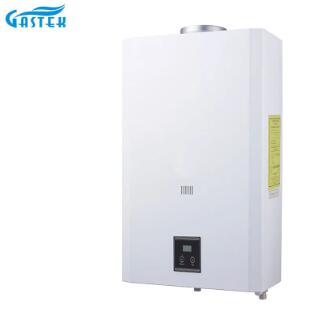The Crucial Role of Gas Control Valves in Electronic Control Constant Temperature Gas Water Heaters
2024-07-25
Introduction
Electronic control constant temperature gas water heaters have become a staple in modern homes, offering a reliable and efficient solution for hot water needs. A critical component within these systems is the gas control valve, which plays a pivotal role in ensuring optimal performance, safety, and energy efficiency. In this blog, we will delve into the mechanics, functions, and benefits of gas control valves, highlighting their importance in the operation of these sophisticated water heaters.
Understanding Gas Control Valves
A gas control valve is a device designed to regulate the flow of gas to the burner in a gas water heater. It operates in conjunction with the water heater's electronic control system to maintain a consistent water temperature, provide safety mechanisms, and enhance energy efficiency.
Key Functions of the Gas Control Valve
1. Gas Flow Regulation:
The primary function of the gas control valve is to manage the flow of gas to the burner. It ensures that the correct amount of gas is supplied based on the demand for hot water. This regulation is crucial for maintaining a steady water temperature and efficient heater operation.
2. Temperature Maintenance:
In an electronic control constant temperature gas water heater, maintaining a consistent water temperature is essential. The gas control valve, guided by the electronic control system, adjusts the gas flow in response to real-time temperature readings from sensors. This precise control ensures that the water remains at the desired temperature.
3. Safety Assurance:
Safety is a top priority in gas water heaters. The gas control valve includes safety features such as automatic shutoff mechanisms that activate in case of pilot light failure, over-temperature situations, or gas leaks. These features prevent potential hazards like gas explosions and ensure the safe operation of the appliance.
4. Burner Modulation:
Advanced gas control valves offer the capability to modulate the burner's output. This means they can adjust the intensity of the flame based on the water temperature requirements, leading to more efficient fuel usage and better temperature control.
5. Integration with Electronic Control Systems:
The gas control valve is intricately linked with the water heater's electronic control system. It receives signals from the controller to adjust the gas flow and burner output, ensuring that the heater operates efficiently and safely. This integration allows for sophisticated control algorithms that optimize performance.
Benefits of Modern Gas Control Valves
1. Enhanced Energy Efficiency:
By precisely regulating the gas flow and modulating the burner, modern gas control valves minimize energy wastage. This efficiency translates into lower gas consumption and reduced utility bills for homeowners.
2. Improved User Comfort:
Consistent water temperature is a key factor in user satisfaction. The ability of the gas control valve to maintain a steady temperature ensures a reliable supply of hot water, enhancing the comfort and convenience for users.
3. Increased Safety:
The advanced safety features of gas control valves, such as automatic shutoff mechanisms, provide peace of mind by preventing potential hazards. This makes gas water heaters safer to use in residential and commercial settings.
4. Longer Appliance Lifespan:
Efficient operation and reduced strain on the water heater's components can extend the appliance's lifespan. Gas control valves contribute to this by ensuring optimal performance and preventing overuse of the burner.
Applications of Gas Control Valves in Water Heaters
1. Residential Use:
In homes, gas control valves are essential for providing a reliable and consistent supply of hot water. They ensure that water heaters operate efficiently, safely, and effectively meet the daily hot water needs of households.
2. Commercial Settings:
In commercial establishments such as hotels, restaurants, and healthcare facilities, the demand for hot water is high and constant. Gas control valves in these settings ensure that water heaters can handle heavy usage while maintaining efficiency and safety.
3. Industrial Applications:
Industries that require large volumes of hot water for processes such as cleaning, manufacturing, or heating benefit from the efficiency and reliability provided by gas control valves. These valves ensure that industrial water heaters operate optimally, reducing downtime and operational costs.
Conclusion
The gas control valve is a vital component in electronic control constant temperature gas water heaters. Its functions in regulating gas flow, maintaining temperature, ensuring safety, and integrating with electronic control systems are crucial for the efficient and reliable operation of these appliances. As technology advances, modern gas control valves continue to enhance the performance, safety, and energy efficiency of gas water heaters, making them an indispensable part of residential, commercial, and industrial applications. Understanding the role and benefits of gas control valves helps users appreciate the sophisticated technology behind their dependable hot water supply.



